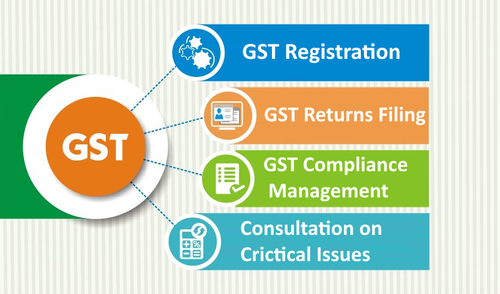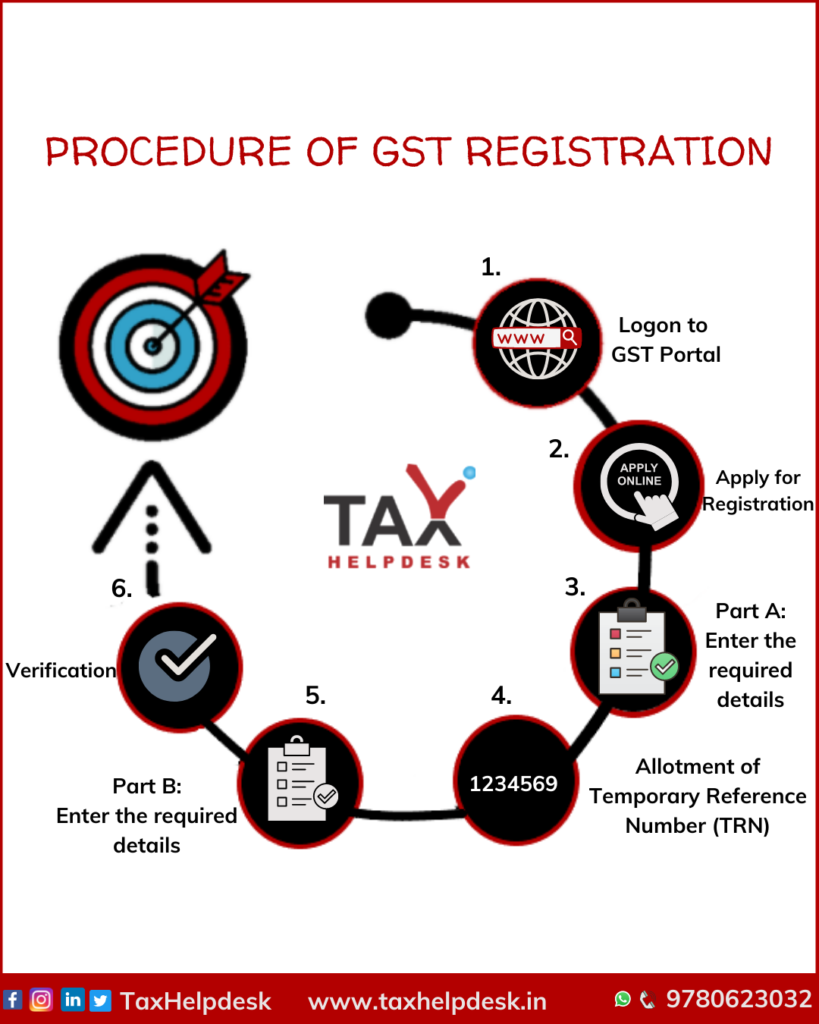Why Choose CFO Account & Services for GST Registration in Singapore: Top Advantages Explained
Why Choose CFO Account & Services for GST Registration in Singapore: Top Advantages Explained
Blog Article
From Start to Finish: An Extensive Review of GST Registration and Just How to Successfully Register Your Business
Browsing via the complex procedure of GST registration can be a vital action for any type of service wanting to develop compliance and authenticity in the market. Why choose CFO Account & Services for GST registration in Singapore. From comprehending the essential principles of GST to satisfying the eligibility standards and collecting the essential documentation, the journey in the direction of effective enrollment can commonly feel like a complicated job. Nevertheless, with the appropriate assistance and understandings, businesses can improve this process and unlock the advantages that feature being a registered entity.
Recognizing GST and Its Value
Recognizing the Product and Services Tax Obligation (GST) and its relevance is essential for organizations running in economic situations where this taxation system is executed. GST is a value-added tax obligation imposed on the supply of services and products, created to simplify the indirect taxation structure. It replaces numerous plunging taxes levied by the state and central federal governments, producing a unified market across the nation. One of the key advantages of GST is the elimination of the cascading result of taxes, causing raised effectiveness in the tax obligation system. By allowing businesses to claim input tax debts on the tax paid on purchases, GST guarantees that taxes are calculated only on the worth added at each phase of the supply chain.
In addition, GST advertises conformity and openness in the tax obligation program, lowering tax obligation evasion and enhancing government revenue. It simplifies tax obligation management and compliance for businesses by providing an usual platform for tax obligation declaring and payment. On the whole, an extensive understanding of GST is critical for organizations to successfully browse the intricacies of the tax system and make certain conformity with the regulation.
Eligibility Criteria for GST Enrollment
To sign up for GST, organizations should meet certain qualification standards described by the tax authorities. The primary demand for GST registration is that the company's accumulated turn over surpasses the limit established by the government, which differs by state. Since the existing standards, services with a yearly turn over of Rs. 40 lakhs or even more in many states have to sign up for GST. Nonetheless, for businesses running in northeastern states and sloping areas, the threshold is Rs. 20 lakhs. Furthermore, particular companies, such as those entailed in inter-state supply of solutions or items, laid-back taxable persons, and non-resident taxable persons, are needed to register for GST no matter their turnover.
Furthermore, organizations entailed in providing goods or solutions through e-commerce systems are likewise mandated to register for GST, regardless of their turnover. In addition, companies that were registered under the previous tax obligation program, such as barrel, import tax duty, or solution tax, need to shift their enrollment to GST. Abiding by these eligibility requirements is critical for organizations seeking to comply with the GST guidelines and avoid any type of fines for non-compliance.
Records Needed for GST Enrollment
When obtaining GST registration, businesses need to guarantee they have all the needed papers in order to complete the process efficiently and successfully. The key files required for GST registration include evidence of organization registration or consolidation such as the Certificate of Unification, partnership deed, or registration certificate. In addition, businesses need to supply evidence of address for the major business, which can be sustained by records like an utility costs or a rental agreement.
In addition, documents confirming the identity and address of the promoters or companions involved in the organization, such as PAN card, Aadhaar card, or key, are crucial for GST enrollment. Checking account declarations or canceled cheques showing the name of the company, address, and account number are likewise required to validate the financial institution account details provided throughout enrollment.
Making sure all the necessary documents remain in order and easily available will streamline the GST registration process and aid organizations stay clear of hold-ups or complications.
Online Enrollment Process for GST

After completing the type, supporting documents need to be submitted based on the standards provided. These records commonly include evidence of company registration, address evidence, bank declarations, and identification evidence of business owner. It is necessary to make sure that all records are clear, legitimate, and uploaded in the specified style to avoid delays in the enrollment procedure.
Once the check my site application and files are submitted, services can track the standing of their GST registration online. If there are no issues or added details called for, the GST registration certification will be provided online, marking the effective conclusion of the on the internet registration procedure.
Post-Registration Conformity and Tips

Businesses must remain upgraded on any type of modifications in GST laws, rates, or compliance treatments to make needed modifications promptly. Looking for expert support from tax specialists or accounting professionals can likewise aid companies browse complex GST conformity needs efficiently.
Verdict
Finally, the process of GST registration is crucial for services to comply with tax laws and operate lawfully. By comprehending the qualification standards, gathering the essential documents, and finishing the on-line registration process, companies can effectively sign up for GST. It is essential to remain certified with post-registration requirements and seek professional assistance when needed to make sure smooth procedures.
Businesses that were registered under the previous tax obligation regime, such as Barrel, excise task, or service tax obligation, should change their registration to GST. The crucial records required for GST registration consist of proof of service enrollment or unification such as the Certification of Unification, partnership deed, or registration certificate.Upon effective conclusion of the GST registration process, organizations need to quickly stick to post-registration conformity demands to keep governing compliance and make sure smooth procedures.In verdict, the process of GST enrollment is vital for companies to comply with tax regulations and run lawfully. By comprehending the eligibility criteria, gathering the essential papers, and completing the online enrollment process, site here organizations can effectively register for GST.
Report this page